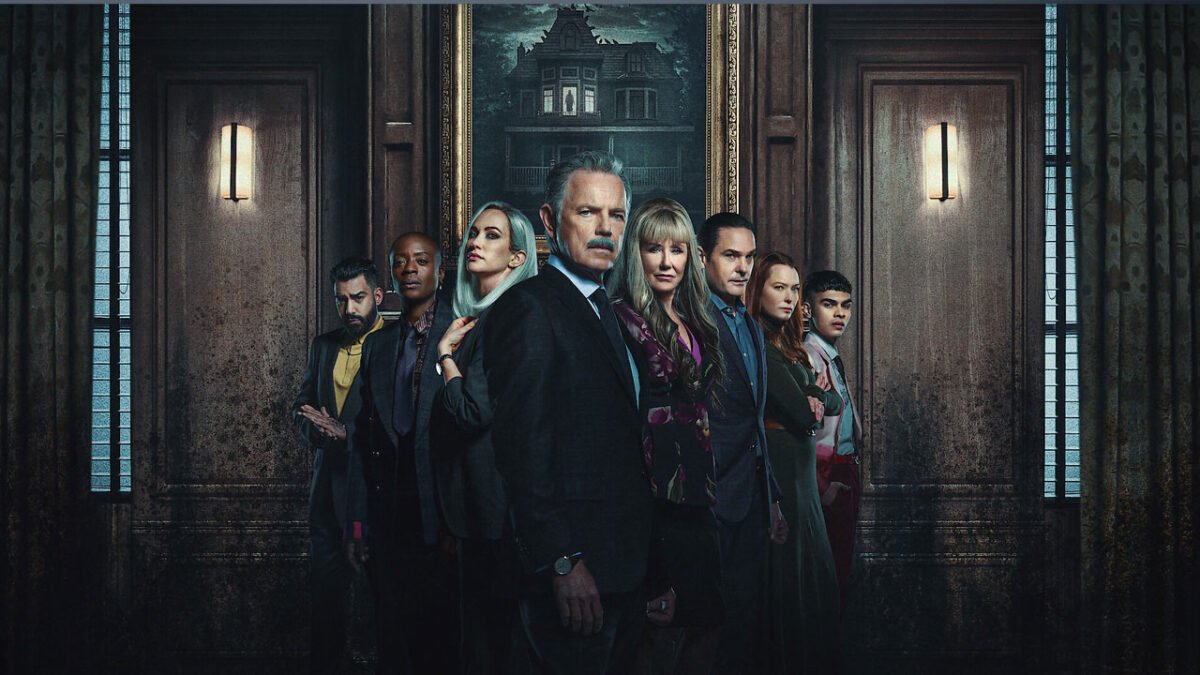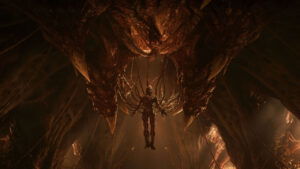As a lover of horror and Edgar Allan Poe, I was eager to dive into Mike Flanagan’s latest Netflix horror series, The Fall of the House of Usher. Flanagan has quickly established himself as one of the preeminent horror auteurs working today, with acclaimed adaptations like The Haunting of Hill House, The Haunting of Bly Manor, and Midnight Mass under his belt. With Usher, Flanagan once again turns to classic literary horror, this time mining the works of Edgar Allan Poe to construct a sprawling and ambitious eight-episode saga about the downfall of a pharmaceutical empire.
Flanagan wastes no time setting an ominous tone, opening on a decrepit mansion where patriarch Roderick Usher (Bruce Greenwood) sits across from a government investigator, ready to confess his role in the demise of his family and company. This framing device provides the skeleton for the series to jump back and forth in time, chronicling the suspicious deaths of Roderick’s heirs and unpacking the rot at the core of the lavish Usher clan.
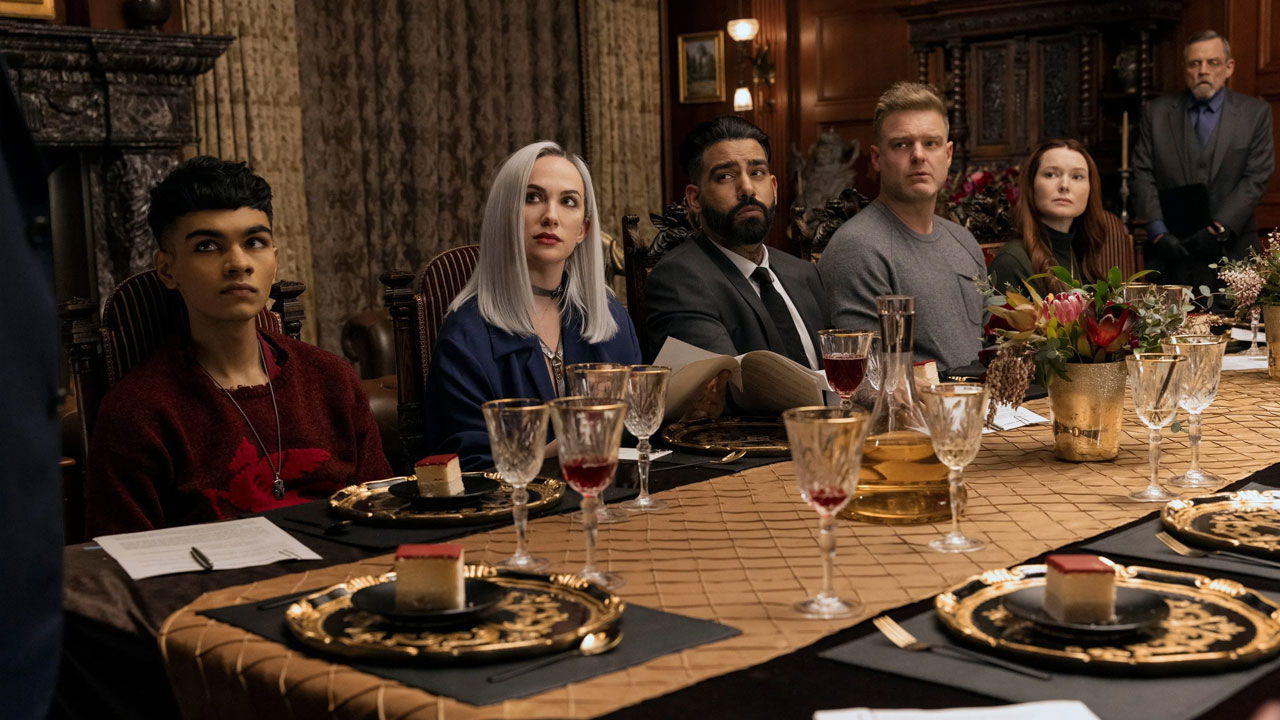
It’s a perfect role for Greenwood, who exudes the calculated coldness of a billionaire even as flashes of regret and despair begin to crack through as his world crumbles. The esteemed character actor Carl Lumbly is also fantastic as Roderick’s confessor, burying righteous anger beneath mannered calm. Their verbal sparring, teasing out revelations across lengthy conversations, is riveting.
“Tonally, The Fall of the House of Usher splits the difference between Succession and American Horror Story.”
The expansive cast in The Fall of the House of Usher features many familiar faces from Flanagan’s previous work, including Henry Thomas as ne’er-do-well son Frederick, Rahul Kohli as the black sheep of the family, and Kate Siegel as the Usher’s ruthless PR fixer. Carla Gugino is a standout as a mysterious woman haunting the Ushers, her intentions obscured but her fury palpable. Newcomer Kyleigh Curran provides a moral center as Roderick’s altruistic granddaughter, Lenore.
Tonally, The Fall of the House of Usher splits the difference between Succession and American Horror Story, satirizing the dirty secrets of the mega-rich before unleashing stylish carnage on the undeserving heirs. Flanagan mines the fertile ground of eat-the-rich rage, taking barely concealed jabs at the Sacklers and Big Pharma. The Usher company essentially poisoned the world, addicting millions to painkillers, and Flanagan savours their downfall.
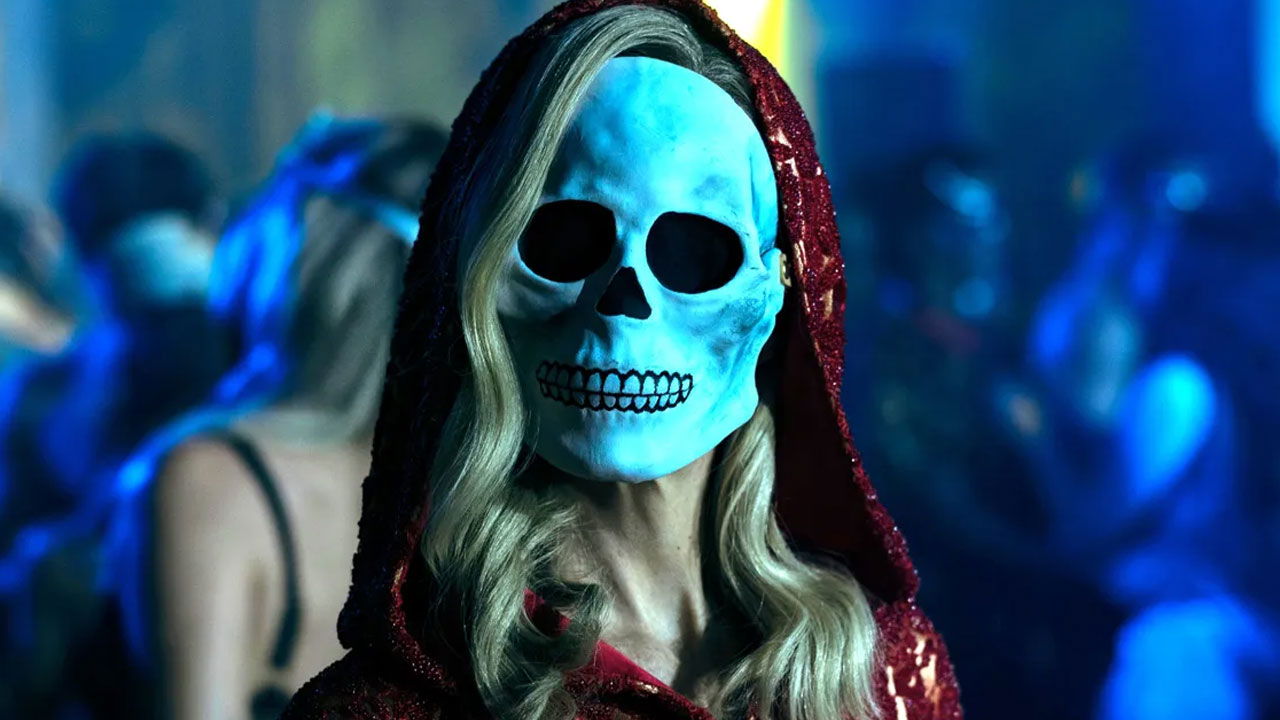
Visually, Flanagan and producer Mike Fimognari craft a sumptuous gothic nightmare, finding creeping dread in both cavernous mansions and antiseptic boardrooms. Sleek offices become sterile tombs, and grand old houses groan with ghosts of the past. The direction is inventive, from bold tracking shots to surreal dream sequences, showcasing Flanagan’s skills behind the camera.
“Mike Flanagan has called The Fall of the House of Usher his ‘dream project,’ and it shows.”
Poe purists may take issue with the fast and loose adaptations, but Flanagan succeeds in capturing the melancholy spirit of Poe’s prose. Plot points are lifted from The Fall of the House of Usher, The Masque of the Red Death, The Black Cat, and other classics, then remixed into new variations. Flanagan even works in references to more obscure Poe works like The Imp of the Perverse.
The series takes on an anthology structure, with each episode focused on the elaborately gruesome demise of a different Usher sibling. The deaths are telegraphed but no less shocking when they arrive, with Flanagan unleashing Grand Guignol gore effects that push the limits of what can be shown on Netflix. These macabre sequences will delight horror fans, even if the pacing suffers a bit as the series settles into a predictable rhythm of buildup and bloody catharsis.
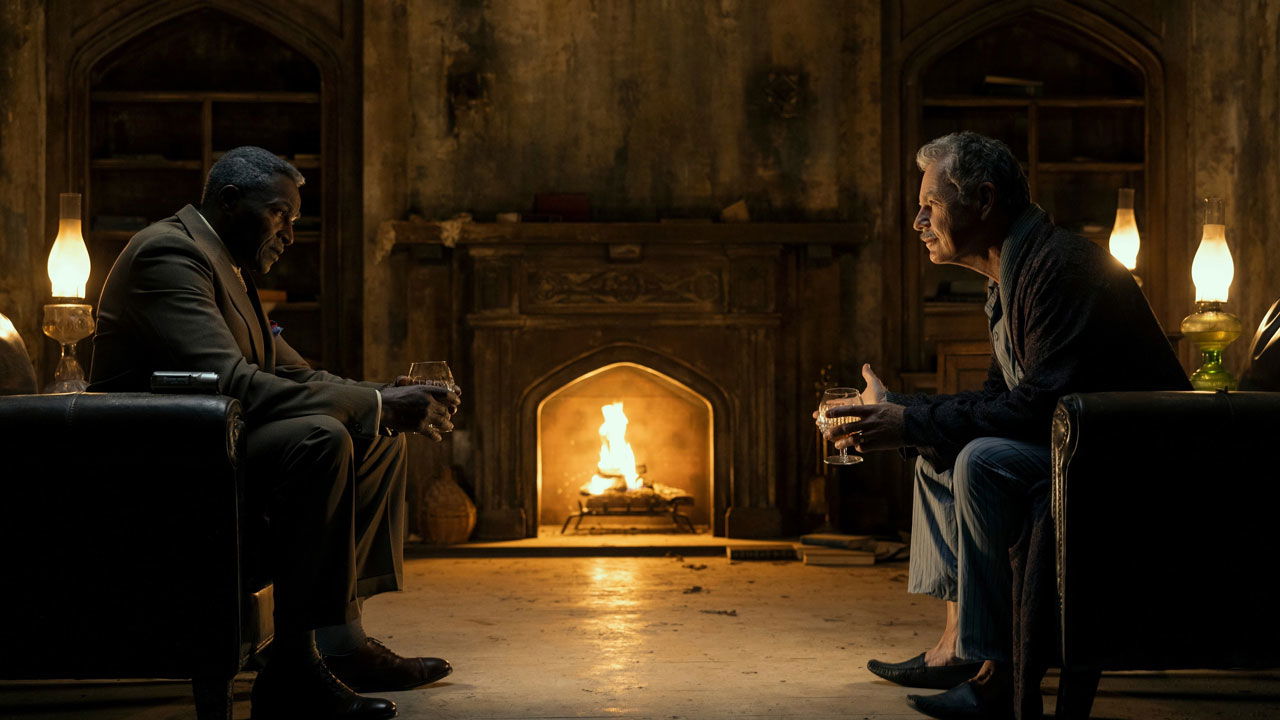
But for all the decadent depravity on display, The Fall of the House of Usher is at its best when exploring more emotional territory. Flanagan has emerged as a master of monologues, giving his talented ensemble moments to shine and unpack their motivations, even managing to dive into the enigmatic Arthur Pym, the company lawyer—portrayed expertly by Mark Hamill. Their speeches lend poetic gravity even to the dissolute Ushers. Flanagan locates the tragedy in characters who seem monstrous on the surface.
As The Fall of the House of Usher heads toward its conclusion, Flanagan refuses to look away from the human toll of the Usher’s misdeeds. The family faces a reckoning as spectres of past sins quite literally come back to haunt them. By the final episodes, a more sombre mood takes hold, with a focus on regret and forgiveness that provides philosophical depth to offset the macabre spectacle.
Mike Flanagan has called The Fall of the House of Usher his “dream project,” and it shows. This adaptation represents the pinnacle of his talents, synthesizing his signature themes around legacy, addiction, and the weight of the past. Usher makes a strong case for Flanagan as the rightful heir to Poe’s dark literary legacy. It will surely leave fans eager to see what he conjures up next. With his Netflix run coming to a close, Flanagan has cemented his status as one of the defining creative voices in the horror genre today with The Fall of the House of Usher.
